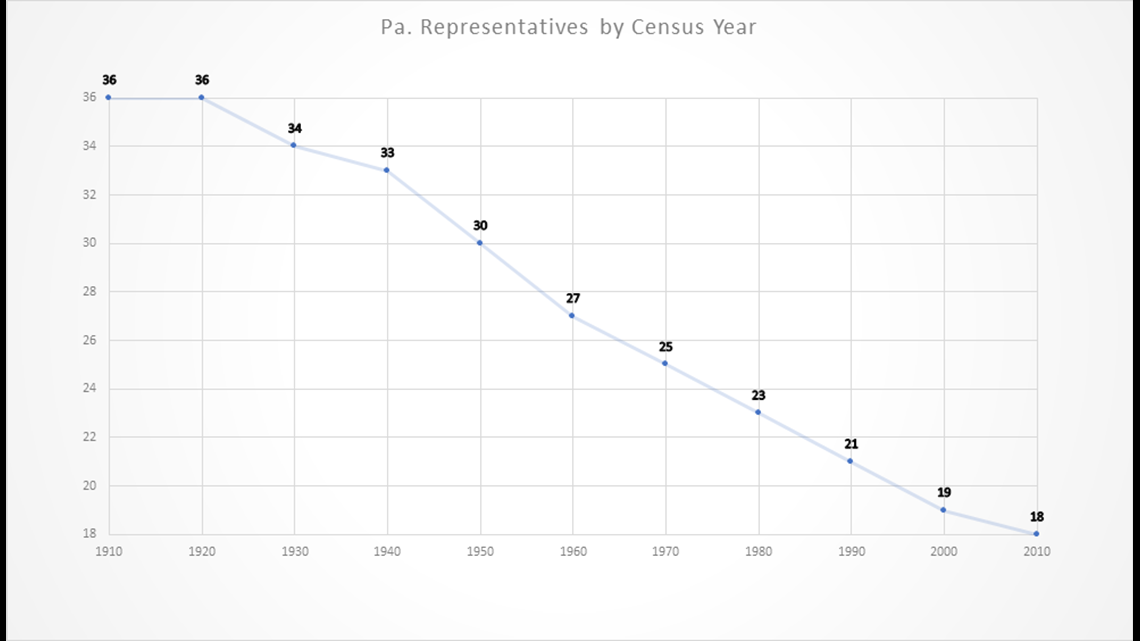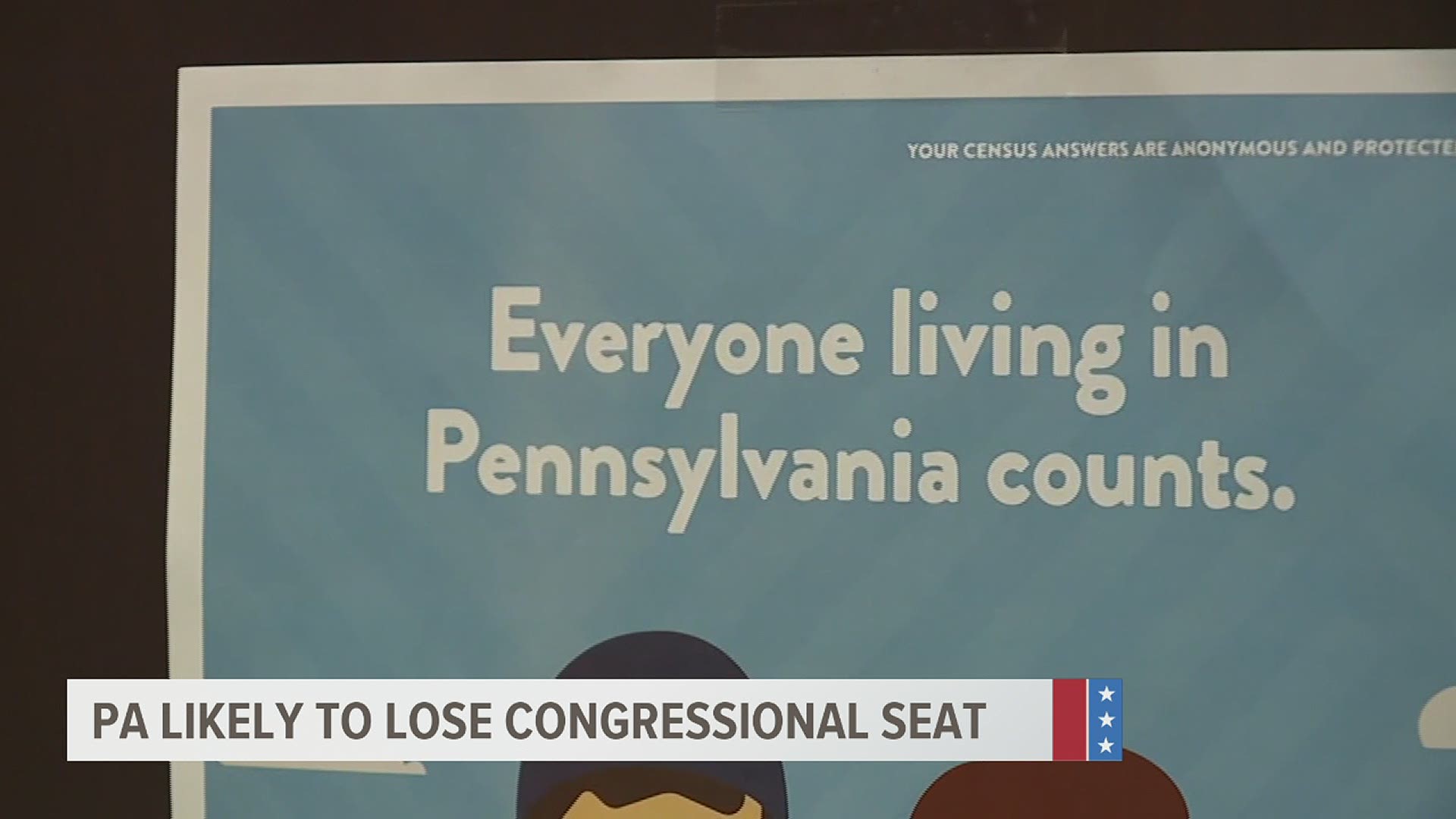HARRISBURG, Pa. — Pennsylvania is projected to lose a congressional seat next year, a potential blow to the swing state’s influence in national politics.
The U.S. House of Representatives has 435 seats, which are apportioned to each state based on population. The decennial Census determines how many seats each state gets, which in turn determines states’ representation in the Electoral College and their potential power during presidential elections.
Both President Donald Trump and former Vice President Joe Biden have mentioned the importance of winning Pennsylvania at recent campaign events.
With its 18 congressional seats and 20 electoral college votes, both political parties are focusing on Pennsylvania to win the presidential election. However that attention could falter in future elections, political experts said.
Pennsylvania’s population grew about 100,000 from 2010 to 2019, according to estimates from the Census Bureau.
But other states, particularly Sun Belt states in the country’s south and west, are growing faster.
“The Northeast and the Upper Midwest has been losing representation and population on a monumental basis,” said Kimball Brace, president of Election Data Services, a political consulting firm based in Manassas, Va.
California, Illinois, Michigan, Minnesota, New York, Pennsylvania, Rhode Island and West Virginia are expected to lose a seat after the Census, according to data analysis by Election Data Services. Arizona, Colorado, Florida, Montana North Carolina and Oregon are expected to gain one seat, while Texas is expected to gain two.
Pennsylvania’s shrinking population as a proportion of the national population is not a new trend. The state has been slowly but steadily shedding congressional seats for 100 years.


After the 2020 Census results come in, Pennsylvania will likely drop from 18 representatives to 17.
“It’s a question of what are your issues that are important to you,” Brace said. “If you only have one person or two people in all of Pennsylvania that represent you, that’s not a lot of voices for all the people in Pennsylvania. Certainly having more voices is better on particular issues that you might have.”
In an effort to court Pennsylvania voters, national political candidates have been focusing on issues important to Pennsylvanians, such as fracking.
Fracking is a large industry in Pennsylvania, where the Marcellus Shale Formation forms America’s largest natural gas field.
Vice President Mike Pence and Democratic vice presidential nominee Kamala Harris both addressed fracking during the vice presidential debate on Oct. 8.
Previous to 2016, Pennsylvania had less importance in national elections. It reliably voted Democratic, with no Republican winning the state since 1988.
“And then when Trump surprisingly won the state, it seemed to put it back in the mix as one of those swing states,” said David O'Connell, associate professor of political science at Dickinson College.
Pennsylvania’s swing state status is likely to keep it relevant nationally, even if it becomes a smaller electoral prize.
“Pennsylvania will be one of the largest states, still, in terms of electoral college votes, that is competitive and seems to have become more competitive since the late 1980s,” O’Connell said. “I think actually its importance in presidential politics will continue regardless of population change following the 2020 Census.”
Besides political representation, the Census determines where huge amounts of federal funds go.
“You really do need an accurate count to ensure that your community is going to have the resources that are necessary for it to flourish as it had before,” O’Connell said.
The Supreme Court on Oct. 13 granted the Trump administration’s request to end the Census count. The results will be prepared and ready by Dec. 31, officials said.

